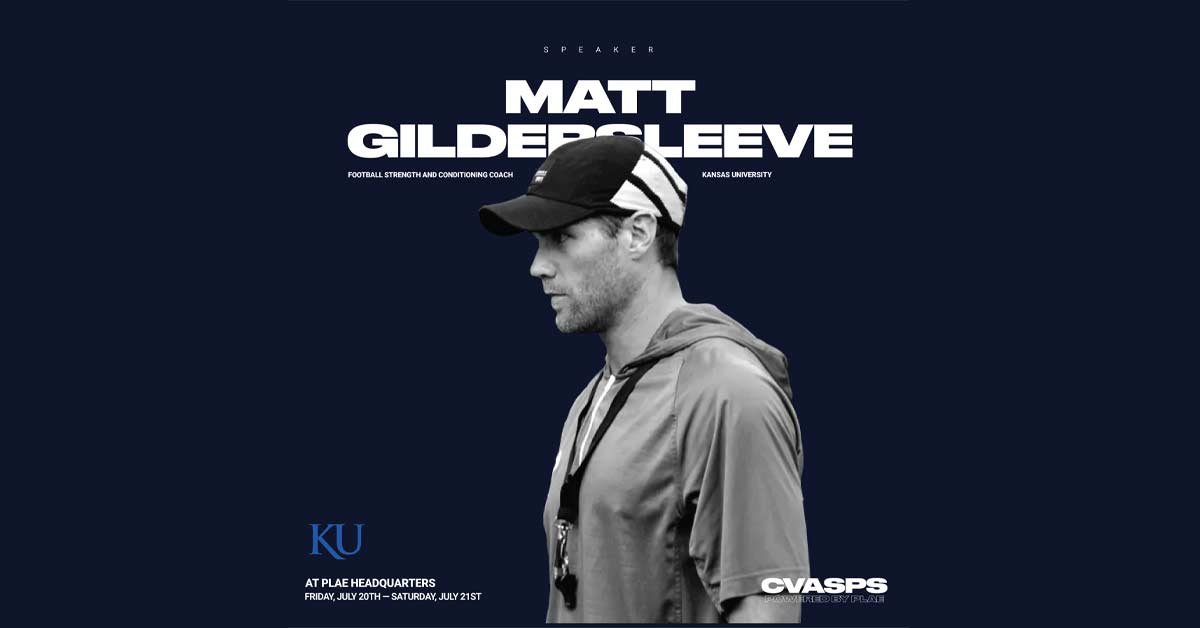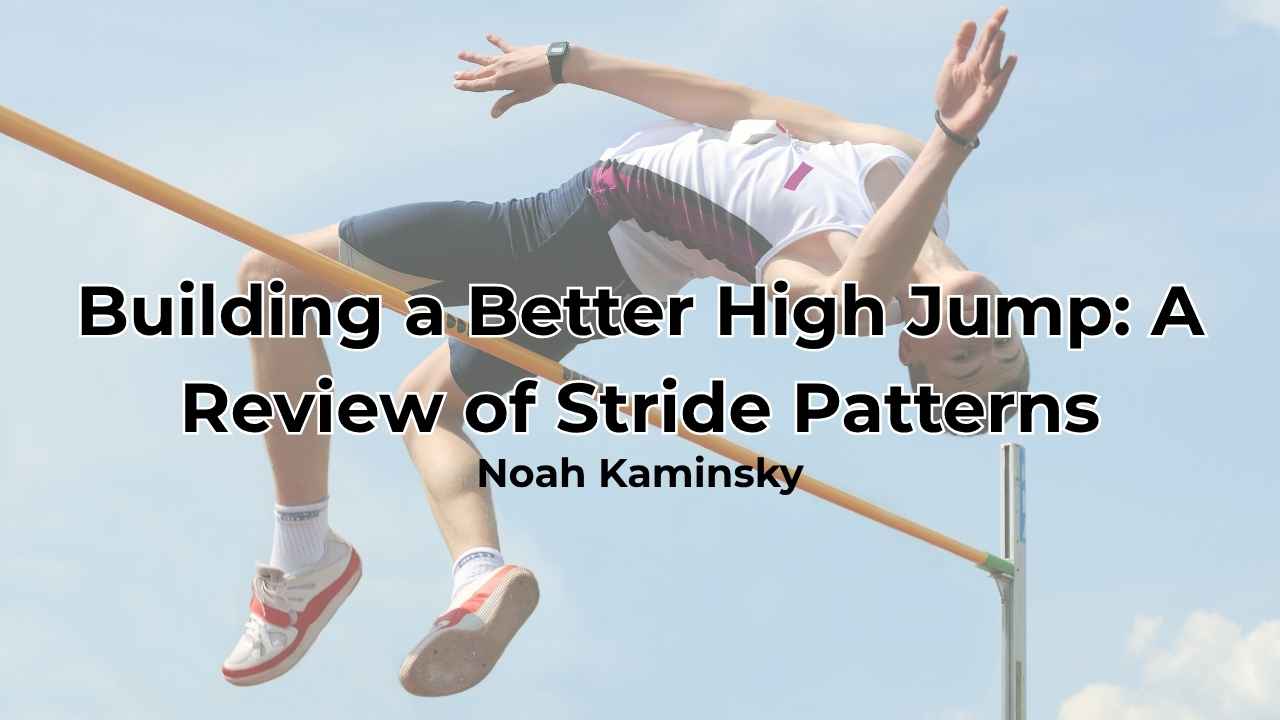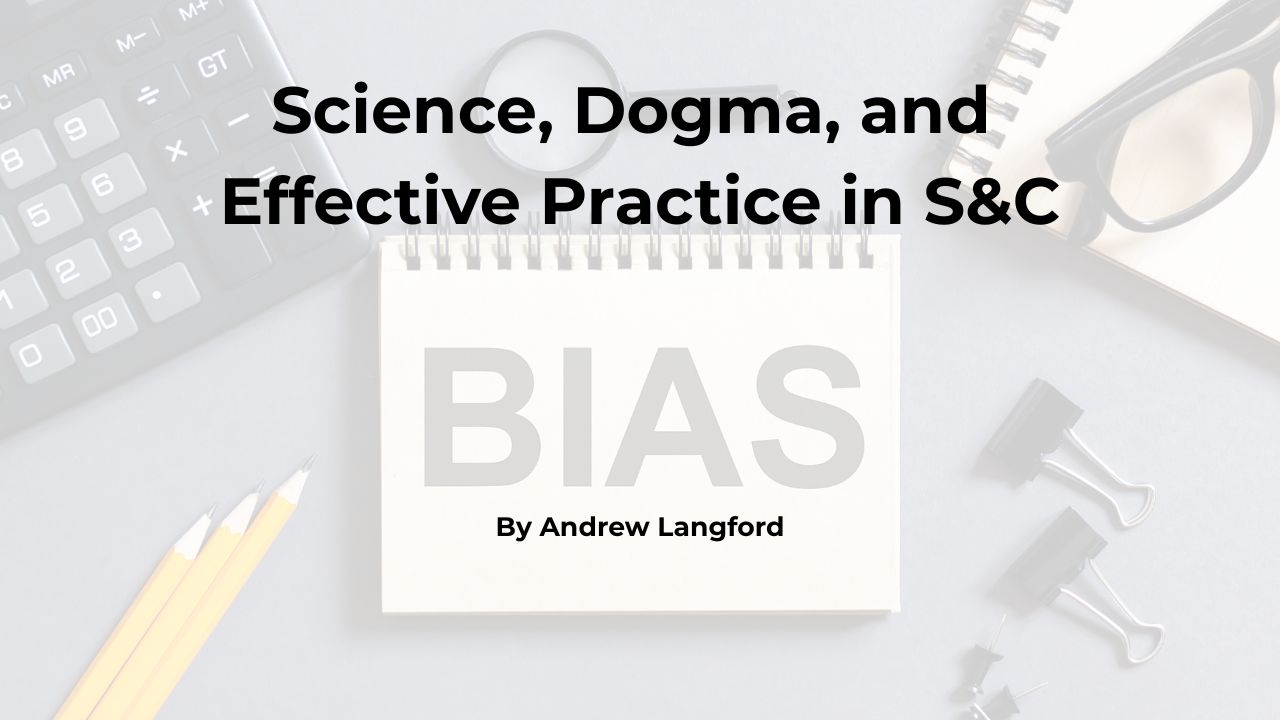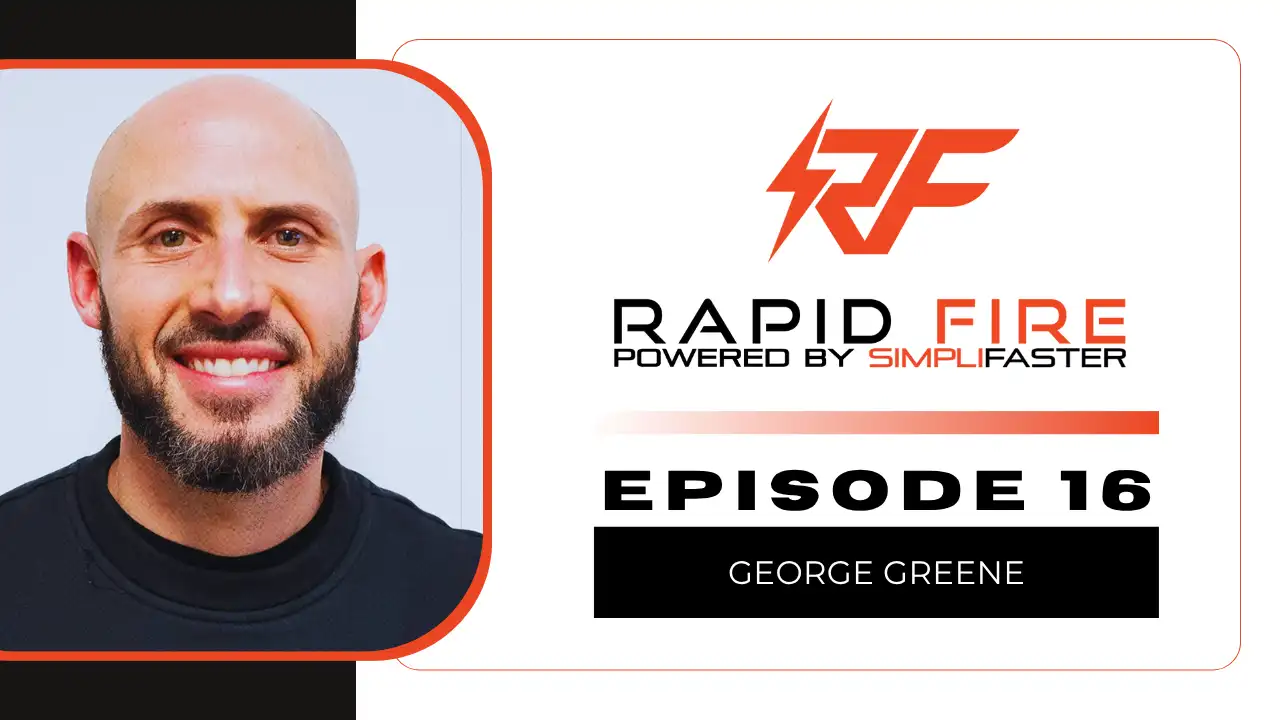The first time I “met” Matt Gildersleeve was during the Coaches vs. COVID-19 clinic put on by Hawkin Dynamics, and his talk was world-class. When it comes to building out progressive ways to improve movement outputs that not only translate to the game but are measurable and quantifiable in competition, I will challenge you to find a better practitioner. I’m elated to welcome Coach Sleeve to CVASPS, not just because I know his presentation will be fantastic, but because he’s one of the best people out there in our vocation. Enough from me, though; let’s meet 2023 presenter, Kansas Football’s Director of Sport Performance, Matt Gildersleeve.
Matt Gildersleeve: First off, I would just like to thank SimpliFaster. What a great platform that continues to educate coaches from all over the world. So, it’s a tremendous privilege to be on SimpliFaster and also to talk about what a great opportunity we have with Jay DeMayo.
CVASPS: What are a handful of mistakes you routinely see made by strength and conditioning coaches in the United States and around the world? And what specifically do you feel should be done differently to correct these mistakes?
Matt Gildersleeve: The biggest mistake I constantly see is judgment without context. I believe we get these small glimpses and snapshots of programs, what programs do—whether it be professional, private sector, collegiate, whatever level that may be—and we see these small snapshots of what a particular coach or program does. And we make judgments on whether that’s good or bad or indifferent or anywhere in between.
The biggest mistake I see S&C coaches making over and over and over again is judgment without context, says @CoachSleeve. Share on XI see this over and over and over again. And I do believe we have one of the most judgmental professions there are. I think we’re first to judge and defend. And it’s a mistake I see all too often.
So, what I would challenge people to do, even if they get a day, is spend it inside a program. There’s so much that goes into programming methodology, between culture and the different factors that go into what you do and how you do it, that even to be with a program for an entire day, there are certainly things that we can take and see and assess. But to try to make a judgment based on snippets and sound bites from programs or coaches, whatever that may be, it’s a very ignorant thing to do. And I think it’s one of the biggest mistakes we make because, if we dug a little bit deeper, I think that’s where we could find there’s a lot of value and resources in a lot of different places.
CVASPS: What advice would you give a coach to improve their knowledge as a process of continuing education? By which I mean, can you point our readers in a few concrete directions to find scientific and practical information to improve the methods used to improve performance?
Matt Gildersleeve: My absolute first recommendation would be anything and everything ALTIS. I know this is becoming a lot more popular than it was maybe five years ago when I started getting into all of this, but man, what an incredible resource in so many different ways. Every resource they have, that they put out—online courses that they do, podcasts that they’ve done, and even articles and email lists.
And I haven’t personally been out to one of their on-site clinics and conferences, but I’ve heard nothing but amazing things. All this is a great resource. And I promise you; they’re not paying me to say that. Other than that, the obvious answer is to join us at PLAE HQ this summer for CVASPS. It’s going to be an awesome weekend that I’m excited to be part of.
CVASPS: How do you feel coaches can find a path to being in a lead role in a department?
Matt Gildersleeve: While there’s absolutely significant value in finding a niche in the world of athletics, I think it totally depends on which route and which destination you want to end up in. In my particular case, to be a head strength and conditioning coach, especially in a football program—and I’m sure it applies to a lot of different paths—you really have to be a generalist in many different areas. Your job is to oversee the big picture of everything from sports science to strength and performance to speed development to conditioning to culture to management.… It’s such a large and vast role that if you get too detailed or specific in one particular niche, you can lose the ability to see the big picture.
So, I would say speed training and speed development as a whole are probably the things that I’m most interested in, and I really enjoy the on-field training. But if I say it’s my niche, I think when you specify in my role, that can cloud some things up.
I like to make sure that I’m constantly sharpening my sword in all directions. And I’ve heard some directors say it’s best to be dangerous at everything. That’s pretty important. I think if you have a very specific lens when you have to manage the whole process of total development, you lose the ability to look at things through a generalist lens of how the entire big picture works together.
I’ve always questioned, or just been curious about, certain programs that have a speed guy and a GPS guy and a weight room guy, and they program all those things separately. Well, those things all work in unison. And so that idea of unification in a program is, to me, very, very important. Sometimes when we get so caught up in niches, it can really cloud and complicate that.
That idea of unification in a program is, to me, very, very important. Sometimes when we get so caught up in niches, it can really cloud and complicate that, says @CoachSleeve. Share on XI prefer when our staff programs all program together. Now, we have a guy who specifies more in speed, but we don’t just say, “You go write this, and you go write that.” It’s a power. We sit down, and we develop those things together. I do think, sometimes, developing and finding a niche can help you move up in certain areas—and if that’s your role and you love a specific thing, then follow your heart and follow that. But I believe there’s a ton of value in having more of a general perspective and lens when your responsibility is to oversee the entire department as a whole, to really give and be able to provide you with the perspective of the big picture.
CVASPS: Can you provide a sneak peek at the topic you will be covering at The Seminar?
Matt Gildersleeve: As I said, I’m so excited about this conference, this clinic, The Seminar. I just couldn’t be more fired up to get out there and meet everybody and talk and, honestly, to learn. In my presentation specifically, I’ll be covering a wide variety of topics, but it will mainly be related to developing and analyzing game speed. There’s such a large gap right now in our evaluation process of:
- What we think speed is.
- How we evaluate it.
We measure miles per hour. We measure 10-yard sprints. There are a lot of different measurements we take. And sometimes, we quantify those as getting faster.
Well, my personal definition of speed—at least, how we use it here at Kansas—is how it applies to your speed and your sport. And is that increasing or not? Because just getting faster, if it doesn’t cross over to actual development of game speed, I think we’re really missing the boat. And so, we will talk about a lot of things.
Just getting faster, if it doesn’t cross over to actual development of game speed, I think we’re really missing the boat, says @CoachSleeve. Share on XWe’re going to talk about what game speed is. We’re going to talk about how we go about developing it. But we’re going to spend a lot of time on how do we analyze that and how do we look at that in the evaluation process of how we are all doing our jobs. We’re gonna go down that rabbit hole of skill acquisition when it relates to your sport.
CVASPS: After reading this, I’m sure you understand why I’m so fired up to welcome Matt to CVASPS this July. He’s a leader in every sense of the word and an open, honest, and candid person to push the profession forward—not just by following the herd but by challenging the status quo to hopefully find better and more efficient ways for us to help our athletes.
We would love for you and your staff to join us at PLAE HQ in Canton, Georgia, on July 21 and 22 for this summer’s edition of The Seminar. It truly is a unique event.
For more info, tap the link, and be on the lookout for the next installment of our presenter Q and A’s here on SimpliFaster.
Since you’re here…
…we have a small favor to ask. More people are reading SimpliFaster than ever, and each week we bring you compelling content from coaches, sport scientists, and physiotherapists who are devoted to building better athletes. Please take a moment to share the articles on social media, engage the authors with questions and comments below, and link to articles when appropriate if you have a blog or participate on forums of related topics. — SF





